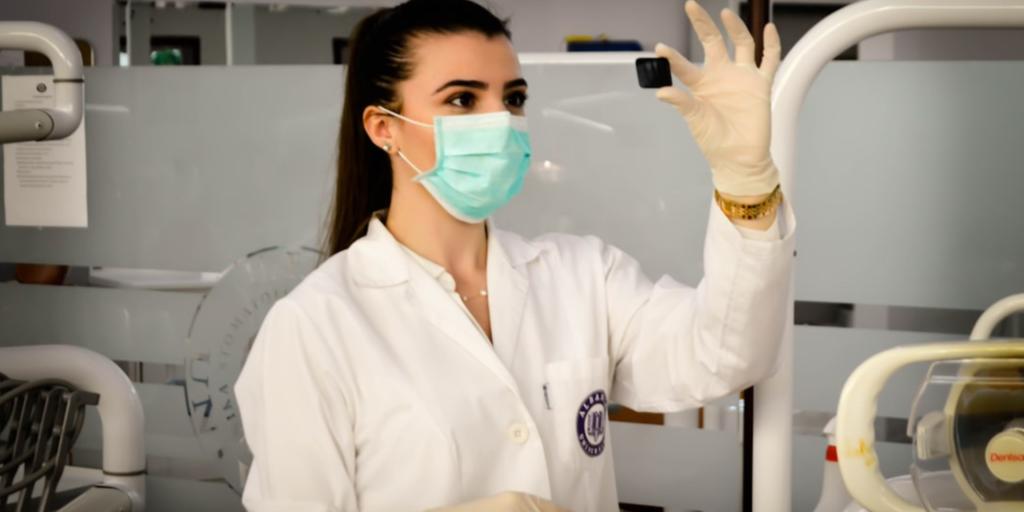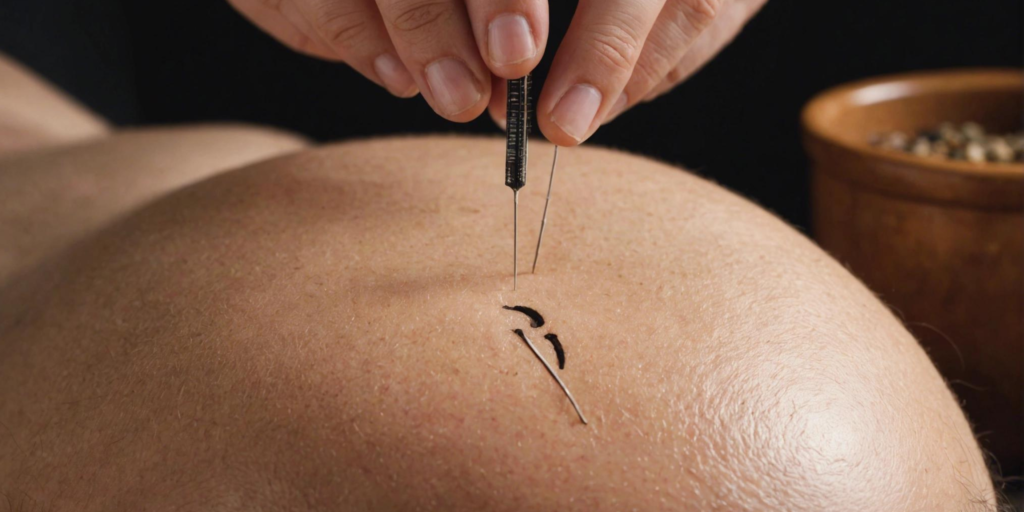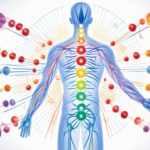Sneak peak
“Acupuncture for Better Digestion” In holistic health practices, acupuncture stands out. It’s a powerful tool for improving digestion. This ancient Chinese therapy has gained recognition worldwide. It can address many health issues, including digestive problems. In this guide, we’ll explore five effective approaches in acupuncture. They target and improve digestion. The techniques stimulate key acupoints. They promote the flow of Qi. They offer a natural way to support digestive health. And, they do so without invading the body. Acupuncture can reduce indigestion, bloating, and other gastrointestinal issues. Explore acupuncture with us to improve digestion and wellness.
Understanding Acupuncture for Better Digestion Function

Acupuncture is an ancient practice rooted in traditional Chinese medicine. It offers a holistic way to improve digestive health. Let’s delve deeper into the profound effects of acupuncture on the digestive system. al Motility
Acupuncture’s influence on gastrointestinal motility is remarkable. Acupuncture targets specific acupoints, like “Stomach 25” and “Large Intestine 4.” It can improve peristalsis. Peristalsis is the wave-like muscle contractions that move food through the digestive tract. This stimulation helps with constipation and diarrhea. It also promotes regular bowel movements and prevents the intestines from getting stagnant.
Regulatory Functions of Acupuncture on the Digestive System
Beyond motility, acupuncture exerts regulatory effects on various digestive functions. It can reduce stomach acid, enzyme activity, and bile production. This fosters a harmonious balance in the gut. It’s a natural way to restore balance and ease pain. This is for people with issues like gastritis or dyspepsia.
Acupuncture Points and Their Impact on Digestive Function
The selection of acupuncture points is crucial in optimizing digestive function. Spleen 6 is on the inner leg. It’s known for its ability to strengthen the spleen and improve nutrient absorption. This makes it good for people with malabsorption. Also, ‘Ren 12’ point stimulation strengthens the stomach. It also harmonizes digestion. It helps with issues like bloating and acid reflux.
Acupuncture’s influence on gut microbiota remains unchanged.
Recent research has revealed how acupuncture affects gut microbiota. These are the diverse microorganisms living in the digestive tract. Acupuncture promotes good bacteria growth. It also stops bad bacteria growth. This helps create a healthy gut flora. A healthy gut flora is key for good digestion and immune function.
Integrative Approaches to Digestive Health
Acupuncture can improve digestive health. You can further enhance it by changing your diet and lifestyle.
A diet rich in fiber, probiotics, and prebiotics supports gut health. Stress-reducing techniques like mindfulness and yoga complement its holistic approach. This approach promotes well-being.
The Role of Acupuncture in Chronic Digestive Conditions
Acupuncture is for people with chronic digestive conditions. These include irritable bowel syndrome (IBS) and inflammatory bowel disease (IBD). It is non-invasive and adjunctive. It helps to reduce symptoms and improve quality of life. It can modulate inflammation and reduce pain. It can also regulate gut movement. These traits make it promising. It’s for those seeking natural options to conventional treatments.
Acupuncture serves as a valuable adjunct therapy for enhancing digestive well-being. It affects motility, regulation, gut bacteria, and acupoints. It helps digestion, nutrient assimilation, and gut health. Embrace the ancient wisdom of acupuncture. It’s going to nurture your digestive system. It will lead you on a journey to holistic wellness.
You May Also Like:
History Of Acupuncture: 5 Millennia of Healing
Clinical Applications of Acupuncture in Gastrointestinal Disorders

Acupuncture is an ancient Chinese practice. It has gained popularity for its potential to treat many health conditions. In gastroenterology, acupuncture has shown promise. It can help manage many gastrointestinal disorders. Here’s a look at using acupuncture to treat digestive issues. It will explore the studies and findings that support its use for gut problems.
Efficacy of Acupuncture in Treating Various Digestive Issues
Acupuncture is effective at easing symptoms of digestive disorders. These include irritable bowel syndrome (IBS), acid reflux, and gastritis. They also include inflammatory bowel diseases (IBD). Acupuncture targets specific acupoints related to digestion. It’s aimed at restoring the balance of energy flow in the body. This promotes digestive health.
Studies and Findings on Acupuncture for Digestive Problems
Many studies have tested whether acupuncture helps manage gut disorders. Studies have shown that acupuncture can reduce belly pain, bloating, and diarrhea. It’s helpful with other common symptoms of digestive issues. Additionally, reports show that acupuncture affects the gut-brain axis. This axis is crucial for communication between the gut and the nervous system.
Acupuncture Techniques and Treatment Protocols
In clinical practice, acupuncturists use many techniques. These include manual needling, electroacupuncture, acupressure, and moxibustion. They use these to address specific digestive complaints. Treatments may involve regular acupuncture sessions. Combining dietary changes, herbal supplements, and lifestyle advice. These enhance its effects on gastrointestinal health.
Acupuncture is an adjunct therapy in gastroenterology.
Acupuncture manages symptoms. It’s now seen as a valuable add-on therapy in gastroenterology. Adding acupuncture to conventional treatments, like medication and physical therapy, can help patients. It gives them a comprehensive way to address digestive disorders. Acupuncture, when combined with standard medicine, has synergistic effects. It can improve clinical results. It can also improve the lives of people with gastrointestinal issues.
Acupuncture has clinical uses in gastrointestinal disorders. It offers a holistic way to manage digestion problems and improve well-being. Research explores acupuncture’s benefits in gastroenterology. Integrating it with conventional treatments creates a comprehensive approach to digestive health. This emphasizes the importance of a multidisciplinary approach in patient care.
You May Also Like:
Pain-Free Living: 5 Acupuncture Secrets for Natural Relief
Safety and Effectiveness of Acupuncture for Digestive Health

Acupuncture is a traditional Chinese medicine practice. It has gained popularity in the West. It can treat many health conditions, including digestive issues. In this section, we’ll explore whether acupuncture is safe. We will also see if it is effective for digestive health.
Common Side Effects and Safety Measures of Acupuncture
Before we’ve discussed whether acupuncture helps digestion, we must understand its side effects. We must also understand how to stay safe. Acupuncture may cause soreness, minor bleeding, or bruising at the needle sites. Yet, these side effects are mild and temporary. To ensure acupuncture safety, you must see a licensed and experienced acupuncturist. They must follow proper hygiene and sterilization practices.
Effectiveness of acupuncture in balancing the gut-brain axis.
The gut-brain axis is key to digestive health. It affects many gut functions, such as motility, secretion, and sensitivity. Acupuncture modulates the gut-brain axis. It helps restore the balance between the gut and the brain and improve digestion. Research studies have shown that acupuncture can help reduce symptoms of digestive disorders. These include irritable bowel syndrome (IBS), acid reflux, and gastritis. Acupuncture stimulates specific acupoints. This promotes the release of neurotransmitters and endorphins. They can reduce inflammation. They can also regulate gut movement and ease pain from digestive issues.
Acupuncture Points for Digestive Health
Acupuncture focuses on specific points on the body. It stimulates healing and balancing energy flow. Acupuncturists target points on the abdomen, legs, and arms for digestive health. They use this to address many digestive issues. For example, stimulating the ST36 point is on the leg. Many people believe that it boosts digestion and eases stomach pain. Knowing the acupuncture points for digestive health can help patients. They can use this knowledge to work with their acupuncturist. They can use it to target their treatment well.
Integrating acupuncture with dietary changes.
Besides acupuncture sessions, making dietary changes can further support digestive health. Acupuncturists often provide guidance on dietary modifications that can complement acupuncture treatments. Eating probiotic-rich foods, fiber, and staying hydrated enhances acupuncture’s benefits for digestive issues. By combining acupuncture with a healthy diet, individuals can optimize their digestive wellness.
Acupuncture is a safe and effective treatment option. It’s an alternative for those seeking to improve their digestive health. People can make informed decisions about acupuncture. They do this by knowing its side effects. They also know its safety measures and its ability to balance the gut-brain axis. They can use this information when deciding whether to add acupuncture. It to their digestive wellness routine.
You May Also Like:
Facial Rejuvenation Acupuncture: Radiant Renewal 2024
Integration of acupuncture with traditional Chinese medicine

Role of Chinese Herbs in Promoting Digestive Health.
Holistic approach to acupuncture in treating digestive disorders.
In this blog, we’ll explore the close bond between acupuncture and Chinese medicine. We will focus on how the use of Chinese herbs is vital to promoting digestive health. People have used Chinese herbs for centuries. They balance the body’s systems and aid digestion. We will explore some key herbs. They often treat digestive issues. Examples are ginger, peppermint, and licorice root. We will see how they work with acupuncture to boost well-being.
Acupuncture has a holistic approach to healthcare. It offers a unique way to treat digestive disorders. Acupuncture stimulates acupoints along the body’s meridian channels. It aims to restore the flow of Qi (vital energy) and fix the imbalances causing digestive issues. We’ve discussed how acupuncture eases bloating, indigestion, and constipation. It also strengthens the digestive system for long-term health.
Also, we will look at case studies and research. They show how effective it’s to combine acupuncture with Chinese herbs. This combination helps manage conditions like irritable bowel syndrome, acid reflux, and gastritis. This approach considers the person’s body, life, and emotions. It offers a full solution to digestive disorders. It stresses the importance of personalized care and prevention.
Also, traditional Chinese medicine sees the body as a whole system. The mind, body, and spirit link together. This view highlights the need to address the physical symptoms. It’s important to also address the emotions and mind. These mental aspects can cause digestive imbalances. Acupuncture can regulate the body’s energy flow. It can help restore harmony within these connected aspects and promote wellness.
Besides acupuncture and herbs, Chinese medicine also offers dietary advice. This advice can aid digestion. Food experts categorize foods based on their energy, taste, and effects on the body. This lets individuals make informed choices. The choices complement their acupuncture and herbal remedies. They can do this by adopting a holistic approach. It integrates acupuncture, Chinese herbs, and diet changes. This lifestyle will sustain digestive wellness.
Traditional Chinese medicine integrates acupuncture. It offers a holistic and lasting approach to digestive health. Chinese herbs and acupuncture work together well. They can improve digestion and well-being. They also help people understand their body’s healing abilities. This approach treats the symptoms. It also addresses the root causes of digestive disorders. It empowers people to take charge of their health through personalized, comprehensive care.
You May Also Like:
Acupuncture Magic: 5 Ways to Reduce Stress Anxiety
Research and Future Prospects in Acupuncture for Digestive Health

Acupuncture is a traditional Chinese medicine practice. It dates back centuries. It has gained more interest in modern healthcare. This is especially true for digestive health. This blog section delves into the urgent challenges facing acupuncture research. The challenges are in the realm of digestive health. It also envisions future directions. These could revolutionize treatment methods. Moreover, it explores new ways to harmonize acupuncture with modern medicine. It shows the promising benefits for patients.
Current Challenges in Acupuncture Research for Digestive Health.
- Limited clinical evidence Despite its long history, studies haven’t proven that acupuncture is effective. They have not proven it for treating digestive disorders.
- Standardization Issues: The variety of acupuncture techniques and protocols varies. This variety hinders the establishment of standard practices for digestive health conditions.
- Research Funding Constraints:Lack of funding for acupuncture research limits its investigations. Its limitations also limit the scope and depth of studies. They’ve limited research into its mechanisms and effectiveness.
Future Directions in Acupuncture Research.
- Personalized treatment approaches:We will tailor acupuncture interventions to patients. We will base them on their individual characteristics and digestive health. This will enhance the outcomes.
- Mechanistic Studies: We are conducting in-depth research. It aims to explain the body’s mechanisms. They underlie acupuncture’s effects on digestion.
- Collaborative Research Initiatives:These efforts aim to foster collaborations. They are between traditional Chinese medicine practitioners, acupuncturists, and modern healthcare professionals. Their goal is to drive interdisciplinary research.
Innovative integration of acupuncture with modern medicine.
- Acupuncture in Pain Management:We will integrate acupuncture with standard pain management. This will reduce stomach pain and boost well-being.
- Acupuncture and Nutritional Therapy:Combining acupuncture sessions with tailored nutritional plans to address digestive issues.
- Acupuncture is an effective way to reduce stress.Acupuncturists use acupuncture as a complementary therapy to reduce stress. Stress can impact digestive health.
Acupuncture research on digestion is changing fast. It brings both challenges and chances for innovation. To fill the current research gaps, we’ve got to explore new paths and work with others. Integrating acupuncture with modern medicine has immense promise. It can enhance digestive health for individuals. The future of acupuncture in digestive health lies in a team approach. It combines tradition with science. This paves the way for personal, effective, and whole treatments. They put patient well-being and long-term health first.
Acupuncture and modern medicine work well together. They offer a unique chance to transform how we’ve treated digestive disorders. Research is expanding and new insights are emerging. Acupuncture’s integration into mainstream healthcare could change digestive care. It’s able to give patients a comprehensive approach to well-being.
You May Also Like:
Acupuncture Boosts Women’s Health and Vitality 7 Powerful Ways
Patient Experiences and Testimonials with Acupuncture for Digestive Issues
Acupuncture has brought relief to many people. They struggle with digestive issues. We use real stories and testimonials. They show how acupuncture has helped people with digestive problems. These personal anecdotes shed light on how well acupuncture works. It improves life and digestion. By delving into these experiences, we gain a deeper understanding. They show the benefits that acupuncture can offer. It’s able to help those seeking alternative treatments for digestive issues.
Impact of Acupuncture on Quality of Life and Digestive Well-being
Acupuncture is an ancient practice rooted in traditional Chinese medicine. It has gained attention in recent years. This is for its whole-person approach to health and wellness. Many people believe that acupuncture helps with digestive issues. It does this by restoring the body’s energy balance. This promotes better digestion and well-being. Many people have added acupuncture to their treatment plans. They’ve reported big improvements in their digestive symptoms. These range from bloating and indigestion. They apply to complex conditions. These include irritable bowel syndrome (IBS) and Crohn’s disease.
One key aspect of acupuncture sets it apart from conventional treatments. It focuses on the root cause rather than the symptoms. Acupuncturists target specific acupoints for the digestive system. They aim to regulate the flow of Qi, or vital energy. This promotes the gut’s optimal functioning. This approach gives quick relief. It also helps long-term digestion.
Acupuncture has physiological effects. It’s also praised for reducing stress and anxiety. These emotions make digestive issues worse. Acupuncture promotes relaxation and reduces body tension. It can improve digestion and enhance natural healing. Patients report feeling more at ease with acupuncture in their wellness routines.
The stories and testimonials are of people. They have seen the benefits of acupuncture for digestive issues. They show the potential of this ancient practice to improve well-being. You can use acupuncture as a complementary therapy or as a standalone treatment. It offers a holistic approach to digestive health. It deals with both the physical and emotional aspects of wellness. More people are turning to alternative and integrative medicine for their healthcare needs. Acupuncture is a valuable tool. It promotes digestive wellness and vitality. Acupuncture for Better Digestion
Conclusion:
Incorporating acupuncture into your wellness routine can improve digestion and health. By exploring the diverse therapies offered at. At NaturalOPD, you can discover a holistic approach to healing. It’s aligned with your wellness goals. Embrace the old wisdom of traditional Chinese medicine. Other modalities on the website can help nurture your well-being from within. Take the first step to better digestion. Do it by visiting NaturalOPD today.









